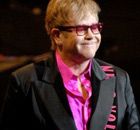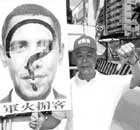-
-
China Daily E-paper
Li Xing
The young should learn from these octogenarians
By Li Xing (China Daily)
Updated: 2010-01-14 06:59
 |
Large Medium Small |
Two more names were added to the roster of top national science award winners on Monday. Once again, to the surprise of my young colleagues, the winners - mathematician Gu Chaohao and missile scientist Sun Jiadong - are octogenarians.
Since the top national science award was established in 2000, only five of the 16 winners have been below the age of 80. The youngest was Wang Xuan (1937-2006), who was 64 when he received the award for developing the computer technology that revolutionized Chinese printing.
Like the Nobel Prize, some have wondered when the award would ever go to a younger scientist. The average age of the nine scientists who won the Nobel prizes for physics, chemistry and medicine last year was 66. The youngest, Carol W. Greider, was 48; the oldest, Willard S. Boyle, was 85.
We live in an age when the young seem to get all the respect. Pop stars, sports stars, and models dominate the news. Few of these young people make a significant contribution to society, but they are generally the first to be hired or rewarded.
Last week, Lu Zhan'gong, the top Party official in Henan province, visited a local work placement center in the city of Jiaozuo. Since no one knew him, he pretended to be unemployed and applied for a job as a media liaison with a local company, claiming he had media experience.
The company hadn't listed an age requirement for the job. However, when it received a phone call from the center saying that a 59-year-old was applying for the job, it declined Lu's application, saying that it was looking for someone under the age of 40.
In today's world, a rapid rise to fame and fortune is the norm. New fashions and new gadgets become obsolete in a few years or even a few months. Instant success seems to be the goal of many younger academics, a distressing number of whom resort to plagiarism to get ahead.
For aspiring scientists and academics, it is understandably discouraging to see the top national award going to distinguished veterans, year after year. But that is what sets this award apart. It not only honors major breakthroughs; it also recognizes the scientists' life-long devotion.
Without exception, the winners began their careers as agronomists, computer scientists, surgeons or biologists when China was poor and backward. Not only did they endure poor working conditions, they also often had to shift their research topics and objectives to meet the needs of the nation.
For instance, in the first three decades of his career, Gu Chaohao changed the focus of his research three times. Each time he achieved a breakthrough, he left the almost ripe fruit to his assistants and ventured into a new area of study.
"He would blaze a trail into a gold mine, and then simply leave it to others while he put together another team to search for another gold mine," said one of Gu's students, Hong Jiaxing, a professor of mathematics at Fudan University.
Such selflessness seems to be lacking in many young people, who talk a good game but have a hard time putting their words into action.
But it is only the devotion and perseverance of scientists like Gu Chaohao and Sun Jiadong that has enabled China to achieve rapid economic growth and improve the lives of its 1.3 billion people.
If China wants to continue its momentum, it must cultivate in the young the same devotion and resolve, as well as the ingenuity, of these top scientists.
E-mail: lixing@chinadaily.com.cn









